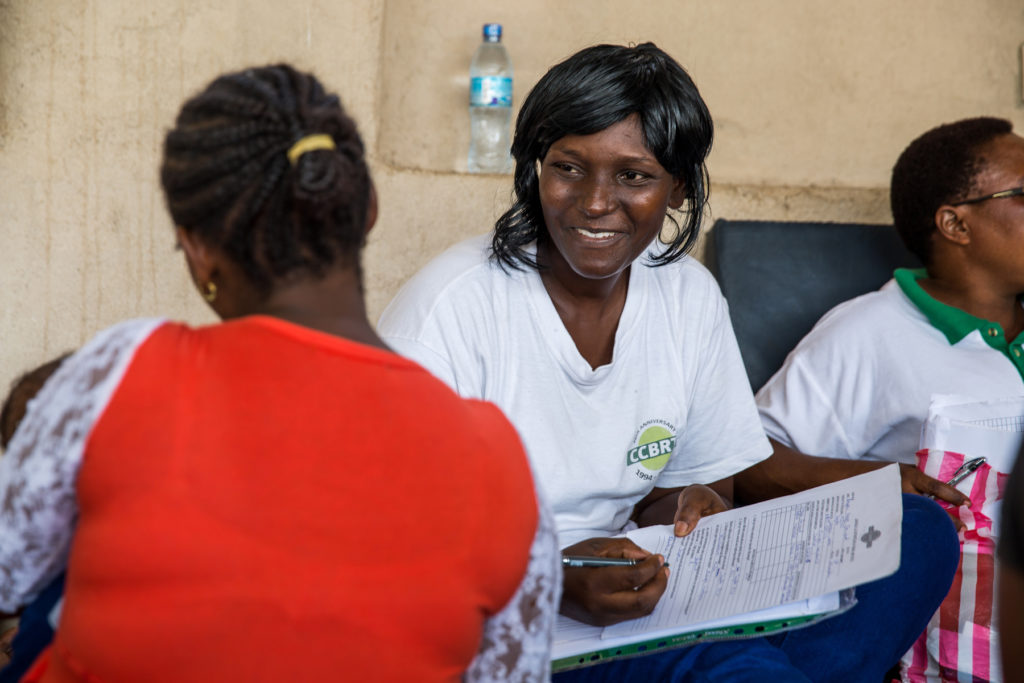Life After Parent-Carer Trainings (PCTs)
Originally posted on the CCBRT blog
How did a PCT help Juliet support her child’s development?
Juliet, a mother of five and an entrepreneur, attended one of CCBRT’s parent-carer trainings (PCTs) about six months ago. Her journey to CCBRT started when her daughter was only one year old:
“I realized that my daughter had a developmental problem. She was not able to sit properly and her neck was not stable,” she said. Fortunately, community members told her that CCBRT may be able to help. After visiting the hospital, Juliet’s daughter was diagnosed with cerebral palsy and started physiotherapy sessions. The sessions helped Juliet’s daughter become stronger and more mobile, but the new mother wanted to support her daughter’s development even more. That’s when she learned about PCTs.
CCBRT started PCTs to engage parents/caregivers of children with cerebral palsy as the primary providers of their child’s treatment plan. PCTs take a simple approach to understanding and supporting children with cerebral palsy. After an overview of the condition, parents are taken through ten modules focused on home-based care of their children – including communicating, positioning, feeding, playing and using assistive devices – to help them create suitable environments. By bringing parents/caregivers together to understand cerebral palsy, observe therapy and learn to evaluate their children’s condition (when to get urgent care, how to identify changes, etc.), the PCT sessions build confidence, knowledge and experience that enable families to support children’s growth and development.
At the beginning of the summer Juliet attended a week-long PCT. In those five days, she learned more about cerebral palsy and practiced feeding and holding her daughter properly. Thanks to her new skills, life after PCT has been much easier. By stretching her daughter’s palms, for example, Juliet has helped further improve her daughter’s mobility and strength. “Because of the training that I got from CCBRT, I have seen a lot of improvements in my child’s development. Before I started working with her at home, she could not unfold her palms and her neck was very weak, but now she can hold and touch things,” Juliet explained.
She is very thankful to now have the confidence to support her child’s development outside of formal physiotherapy sessions, especially since it is hard for her to travel to CCBRT as often as she would like. The PCT empowered Juliet to continue her child’s therapy at home. She concluded, “I thank God every day for CCBRT. I hope you continue providing these trainings, because you are touching the lives of many people.” While PCTs don’t replace the critical need for more rehabilitation staff and resources in Tanzania, teaching parents to provide for their child helps maximize the impact of physiotherapy sessions and optimize development outcomes.


